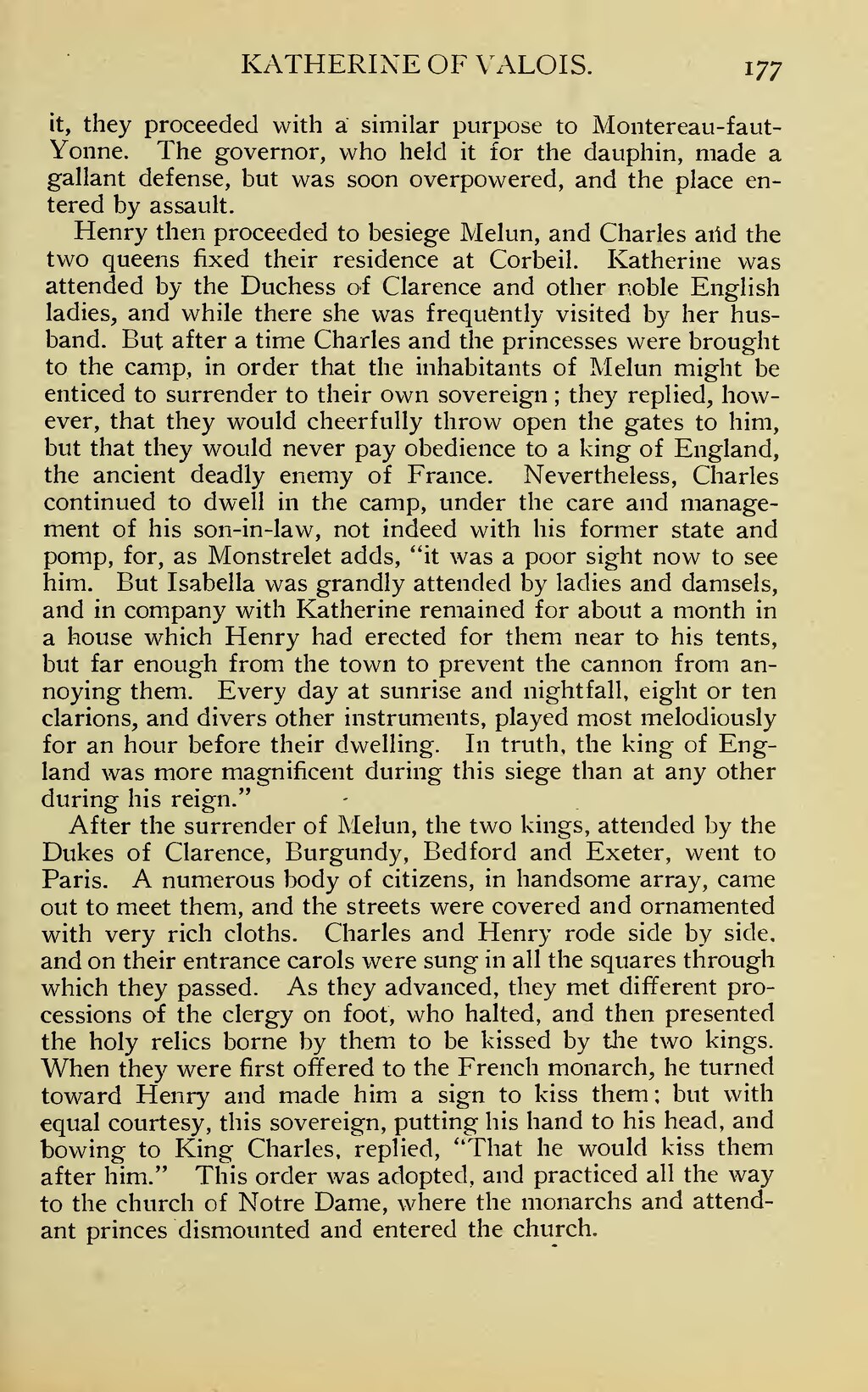KATHERINE OF VALOIS. 177 it, they proceeded with a similar purpose to Montereau-faut- Yonne. The governor, who held it for the dauphin, made a gallant defense, but was soon overpowered, and the place en- tered by assault. Henry then proceeded to besiege Melun, and Charles arid the two queens fixed their residence at Corbeil. Katherine was attended by the Duchess of Clarence and other noble English ladies, and while there she was frequently visited by her hus- band. But after a time Charles and the princesses were brought to the camp, in order that the inhabitants of Melun might be enticed to surrender to their own sovereign ; they replied, how- ever, that they would cheerfully throw open the gates to him, but that they would never pay obedience to a king of England, the ancient deadly enemy of France. Nevertheless, Charles continued to dwell in the camp, under the care and manage- ment of his son-in-law, not indeed with his former state and pomp, for, as Monstrelet adds, "it was a poor sight now to see him. But Isabella was grandly attended by ladies and damsels, and in company with Katherine remained for about a month in a house which Henry had erected for them near to his tents, but far enough from the town to prevent the cannon from an- noying them. Every day at sunrise and nightfall, eight or ten clarions, and divers other instruments, played most melodiously for an hour before their dwelling. In truth, the king of Eng- land was more magnificent during this siege than at any other during his reign." After the surrender of Melun, the two kings, attended by the Dukes of Clarence, Burgundy, Bedford and Exeter, went to Paris. A numerous body of citizens, in handsome array, came out to meet them, and the streets were covered and ornamented with very rich cloths. Charles and Henry rode side by side, and on their entrance carols were sung in all the squares through which they passed. As they advanced, they met different pro- cessions of the clergy on foot, who halted, and then presented the holy relics borne by them to be kissed by the two kings. When they were first offered to the French monarch, he turned toward Henry and made him a sign to kiss them ; but with equal courtesy, this sovereign, putting his hand to his head, and bowing to King Charles, replied, "That he would kiss them after him." This order was adopted, and practiced all the way to the church of Notre Dame, where the monarchs and attend- ant princes dismounted and entered the church.
Page:The Queens of England.djvu/211
This page needs to be proofread.
